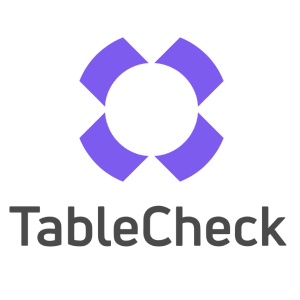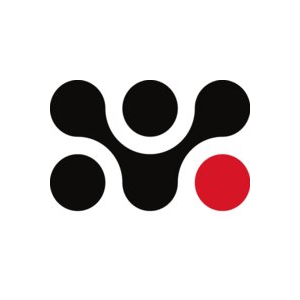Updated November 11, 2024
Respect the hustle: Having a side business in Japan
While salaries are good for engineers in Japan, you might find yourself considering a side job for a little more pocket money for expenses and leisure. But are engineers allowed to have side businesses? What do you need to arrange before you can start?
In this article, I’ll answer some questions you might have about picking up a second job while working as a software engineer in Japan. I will also give you some suggestions for how to find something that works for you.
This is not an article about freelancing full-time, nor is it about starting your own business. You can check out the linked articles for detailed information about those topics. Or, if you’re looking for a full-time software engineer position, check out Japan Dev for new jobs from Japan’s top modern tech companies!
In this article: 📝
Let’s dive into the details about getting a side business in Japan.
1. Can you have a side business in Japan?

The short answer is yes. But whether you need to do paperwork with the immigration bureau or not depends on the type of side work you are planning to do. And of course – if your contract at your full-time job allows it in the first place.
Employment contract and employee regulations
First, check your work contract and employment regulations (shugyo kisoku; 就業規則). Do the conditions allow you to do fukugyo (副業)?
If having a second job is allowed, it may require approval from your boss or human resources. If it isn’t allowed, it isn’t worth the risk of getting caught. Violating employee rules could get you terminated.
Even if you are in the clear, make sure that you follow the proper procedures. This could mean submitting an application form or reporting to your main employer regularly. Following the rules will build trust and keep you employed by the company that granted you your work visa in the first place.
Be very careful: If you work part-time for another software or engineering-related company, it can’t be a competitor of your day job. This will not only violate trust between you and your main employer, but it has a high chance of getting you fired, or worse, in trouble with the law.
Work visa category
The next thing to consider is your work visa.
If you come to Japan as a software engineer, you will either be on an Engineer/Specialist in Humanities/International Services visa or a Highly Skilled Professional visa. The type of side work you can do without a trip to the immigration office depends on your visa type.
On the Engineer/Specialist in Humanities/International Services visa, you can do side jobs covered by the scope of the visa without having to get permission.
This could be doing some engineering work for another company part-time, teaching programming once a week at a community center or as a private tutor, writing articles periodically about the tech scene, or even translating or interpreting.
One-time jobs and any volunteer activities are also allowed without any special permissions.
However, if you are in Japan on the Highly Skilled Professional visa, you need to get permission from immigration to do anything that isn’t your main gig. If you want to do something for another company, you need to apply for Permission to Engage in Other Activity.
2. What is Permission to Engage in Other Activity?
“Permission to Engage in Other Activity” (shikakugai katsudo kyoka; 資格外活動許可) is special approval from the immigration office to do something for money that isn’t allowed under your visa category. In this case, a side job.
Below are the conditions for applying for this permit:
1) The side gig doesn’t interfere with the job that landed you your visa
2) You continue to work at your main job
3) The job falls under one of the work visa categories or the highly skilled professional visa. (However, jobs under the specified skilled worker or technical trainee categories are excluded)
4) The job isn’t anything illegal or work in the sex industry or in night clubs, girls bars, pachinko parlors, game centers, etc.
5) You haven’t been issued an order to be imprisoned or received notice of a police hearing (Eek!)
6) You are on your best behavior!
7) Your main employer is OK with you applying
There are two types of permission: Inclusive and exclusive. One person can be granted both, but in the case that you have one already, immigration will be more strict on the condition that the additional work won’t disrupt your main job.
Inclusive (包括許可) allows for simple labor up to 28 hours a week. This is for students or dependents to do part-time jobs. It is also granted to Instructor, Engineer/Humanities, and Skilled Labor (sports instructors only) work visa holders if the job is for a local government or public organization.
People who come to Japan on a designated activities visa but intend to look for employment to continue their stay or have time before their job starts are also issued this type of permit.
Exclusive permission (個別許可)is for work visa holders who want to do a specific job or work for a certain company not under their visa permission. It is granted case-by-case, rather than in general. The number of hours you work can’t exceed what you work for your main job.
This is the type of permit you would receive if you wanted a side job on a Highly Skilled Professional visa, or wanted to do a side job outside of the allowed categories of an Engineer/Humanities visa.
This kind of permit is also issued if you register as a sole proprietor (個人事業主) or you are doing work that is difficult to objectively measure labor hours.
It’s important to emphasize that foreign residents in Japan on work visas like Engineer/Humanities cannot do unskilled labor. Period. A side job at a conbini, waiting tables at a restaurant, or working hotel cleaning staff is prohibited.
If you decide to get permanent residency down the road, then you will no longer have to worry about limits on the types of jobs you can do. But for now, be mindful of the categories!
3. How do you apply for Permission to Engage in Other Activities?

So you have found a gig and you need to apply for shikakugai katsudou kyoka. Now what?
The application has to be made at your designated immigration office. In principle, you have to do it in person. You can do it online only if you are applying for it at the same time as renewing your main visa.
You will need:
・The application form (PDF, Excel)
・Official paperwork explaining the job (such as a contract)
・Your foreign residency card
・Your passport (for checking your visa status) or a certificate showing your visa status
・If you can’t show your passport, then documentation as to why
You can fill out the application digitally and print it out, or print out a blank version and write it by hand. You need one set of hard copies to turn in. Japanese and English are both allowed, but Japanese is usually processed faster.
The good news is that there is no fee for the application! So you don’t need to get an inshi (印紙) payment stamp for the form.
Once you turn it in, it will take between two weeks and two months to hear back. You can’t work while it is being processed. The decision is final. So if you get rejected, then you need to find another gig!
You have to reapply for permission to engage in other activities every time you renew your work visa. Remember to pay attention to the expiration date if it is shorter than your main visa.
When I applied for this permission twice as a student, I found it to be simple and painless! Just keep waiting times at the immigration office in mind, since they will make you submit it at the window after they check your paperwork face-to-face. Get there early and be prepared to wait.
If you want to be crazy like me, line up a little before the office opens. I once got the very first number of the day… But how much of a line forms before the doors open depends on the traffic volume at your nearest bureau.
4. How do you find side work in Japan?
Once you have decided you want to pick up a second job, where do you look? Here are some ways you can start your search.
• Join a freelance work matching app like Sollective
Not only does this job board app help match you with the best project-based work that has gone through a strict vetting process, but it also provides a full suite of tools for everything from contracts and invoices to time cards and task flow management.
The service doesn’t take a cut from your pay, and is available in both English and Japanese. There is even a community board and in-person networking events to jump start your new venture.
• Explore opportunities on LinkedIn or YOUTRUST
If you are looking for something more than just Facebook or LinkedIn, then you can try the side job and career support platform YOUTRUST to build connections.
Based on your profile and connections, you can get contacted by scouts with offers. Events are also listed on the app like Facebook or LinkedIn, so you can expand your network in person too.
The service is popular in the Japanese IT startup industry, so it can be a powerful networking tool in your side business search. Unfortunately, it is currently only available in Japanese. All the more reason to learn Japanese!
・Searching for software engineers jobs in Japan?
Japan Dev is a job board for software developers, designers, and PMs who want to work at modern tech companies in Japan.
While the main focus of this site is full-time positions, more and more companies (especially smaller startups) are looking for engineers, designers, and other IT professionals to help out with side projects. Japan Dev has also posted contractor and part-time positions in the past, which are ideal for engineers looking for side jobs.
The platform also provides a comprehensive list of the top modern, global IT companies in Japan. It’s a great way to find tech companies with the best work environments! The list is constantly updated, so if you’re looking for a resource to level up your career in Japan, be sure to regularly check out Japan Dev for new job opportunities.
• Network, network, network…

Maybe you don’t know what kinds of jobs are available at the moment, but a friend or colleague might! They could know someone who is looking to hire someone with your skill set.
This is how I ended up writing for Japan Dev! Tell a friend that you want a side job and what kind of work you are thinking about trying. You never know, they could have valuable advice or know of something that fits you perfectly.
Go to tech meetups and networking events like you would for your day job, or even hackathons. Prepare a portfolio or website, and if there is someone who is interested in your services, make sure to keep following up with them.
• Check your friends’ social media
You probably are scrolling a lot already, but people often post on social media like Facebook when they are looking for trusted recommendations. That includes looking for someone for a possible side gig.
I was recently messaged by a former colleague if I knew anyone who could teach an English course once or twice a week. I asked around privately but I also posted on Facebook, in case a friend of a friend was looking for something.
I have also answered those calls! Even if you haven’t done it before, if there is something that interests you and the conditions are right, then don’t be afraid to give it a try.
• Be open to new challenges

One of the most interesting of my side job adventures was when a new friend posted that she was looking for stage staff for a play. I only have a little bit of theatre experience, but I thought it was a cool opportunity. I quickly said I would do it.
This was a one-off job, but it led to helping with another production for a different group, and then even working for a community festival. I ended up meeting a lot of new people and learning a ton.
Don’t give up on something if it is just a one-time deal or even just volunteer. You will learn new skills and meet new connections. Maybe you will be contacted about an opportunity from someone else!
You don’t have to limit yourself with what you try. (Just keep it within the bounds of your visa status!)
Whatever you end up finding, just don’t forget: If you make more than 200,000 yen on it a year, it needs to be declared on your taxes.
5. Working a side job in Japan
There are a few things to keep in mind if you would like to have a side business as a foreigner working in Japan. While it is possible to do a side gig, you often need permission from both your boss and immigration.
By applying for Permission to Engage in Other Activity with your local immigration office, you can do a job that is not in the same category as your work visa. This permit is required in all cases if you are on a Highly Skilled Professional visa!
Make use of industry networking platforms and events, but remember that the best recommendations can sometimes come from close to home: Friends and coworkers!
But be careful: Don’t bite off more than you can chew. Taking on side work that takes up more time than your day job not only hurts your job performance all around, but also goes against immigration regulations.
Remember that your main job is the reason you were granted a visa to come to Japan in the first place. Building trust with your company will bring you stability and career growth.
If you aren’t making what you feel to be an adequate salary, then it might be time to look for something new instead!
Protect your peace of mind and remember to pencil in some rest and relaxation too. Don’t forget that there are lots of things to enjoy in Japan off the clock as well!
Get Job Alerts
Sign up for our newsletter to get hand-picked tech jobs in Japan – straight to your inbox.








